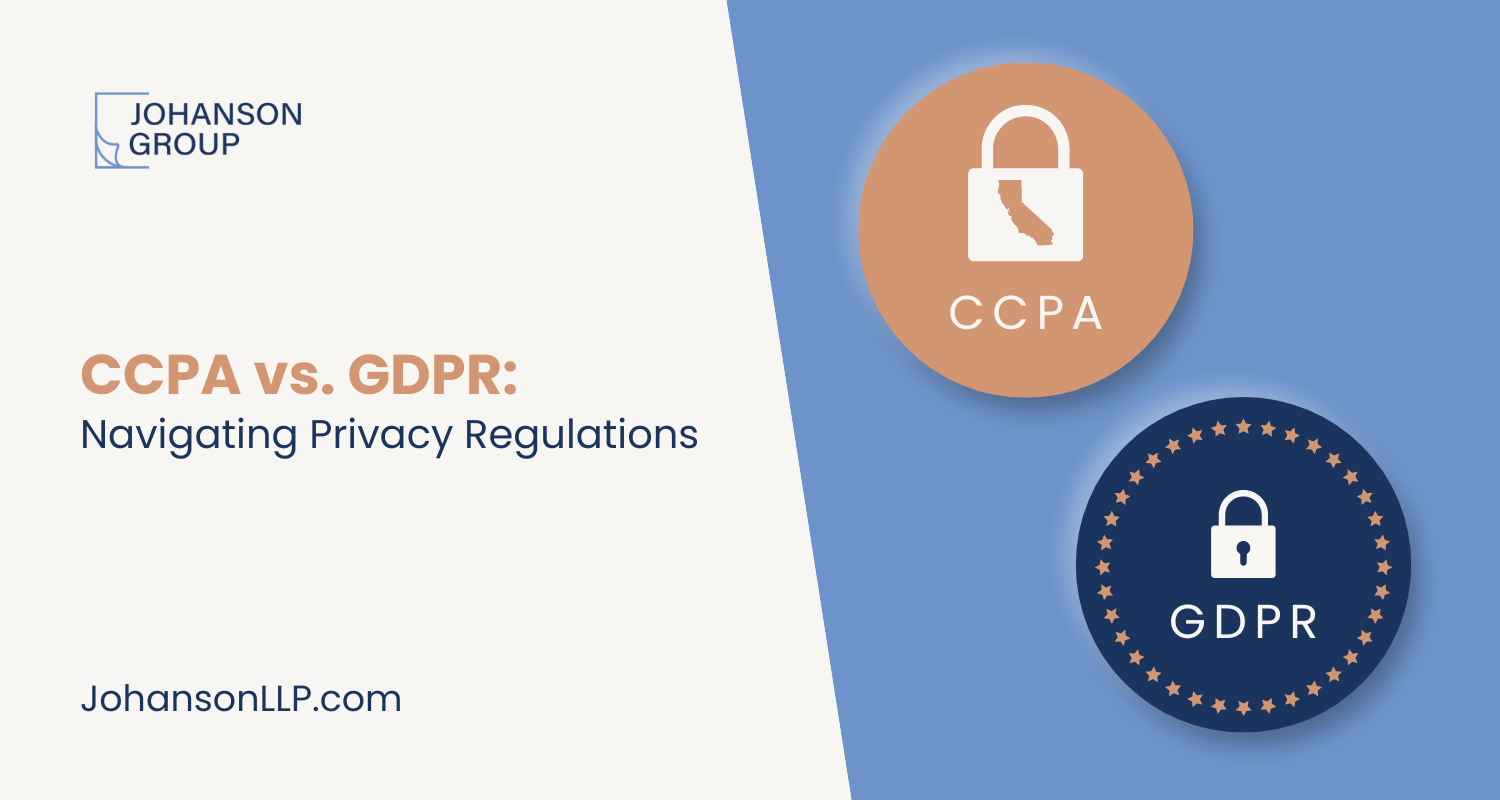CCPA vs GDPR: Navigating Privacy Regulations
Governments worldwide have responded by enacting legislation to protect individuals' personal data. Two significant pieces of legislation leading this charge are the General Data Protection Regulation (GDPR) in the European Union and the California Consumer Privacy Act (CCPA) in the United States. So let's look into CCPA vs. GDPR, the similarities and differences between the two.
A Brief Summary of GDPR:
EU law since 2018, protecting EU residents' data.
Applies globally to organizations handling EU residents' data.
Defines data subject rights, lawful processing, and accountability.
Imposes fines up to 4% of global turnover for breaches.
More about GDPR:
What is GDPR? - The Ultimate Guide to GDPR
GDPR.EU - Official European Union site
A Brief Summary of CCPA:
California law since 2020, enhancing residents' privacy.
Applies to businesses meeting specific revenue or data criteria.
Grants consumers rights to know, opt-out, and non-discrimination.
Fines up to $7,500 per violation for non-compliance.
More about CCPA:
CCPA Civil Code - Official code on California state legislation information site
CCPA Overview - Official overview
Definition of Personal Data
CCPA Definition of Personal Information:
According to the CCPA, personal information refers to information that identifies, relates to, describes, is capable of being associated with, or could reasonably be linked, directly or indirectly, with a particular consumer or household. This includes, but is not limited to, identifiers such as a real name, alias, postal address, unique personal identifier, online identifier, Internet Protocol address, email address, account name, social security number, driver's license number, passport number, or other similar identifiers.
CCPA also considers personal information to include categories of information such as biometric information, geolocation data, professional or employment-related information, education information, and inferences drawn from other personal information that may create a profile about a consumer.
GDPR Definition of Personal Data:
Under the GDPR, personal data is defined as any information relating to an identified or identifiable natural person ('data subject'). An identifiable natural person is one who can be identified, directly or indirectly, in particular by reference to an identifier such as a name, an identification number, location data, an online identifier, or to one or more factors specific to the physical, physiological, genetic, mental, economic, cultural, or social identity of that natural person.
GDPR's definition of personal data is broad and encompasses any information that can be linked to an individual, including basic identity information, web data, biometric data, health and genetic data, cultural or social identity information, and more.
What Rights Do the CCPA and GDPR Give People?
Both the California Consumer Privacy Act (CCPA) and the General Data Protection Regulation (GDPR) grant individuals certain rights regarding their personal data. Here's a comparison of the rights provided by each:
Rights under CCPA (California Consumer Privacy Act):
Right to Know: Individuals have the right to know what personal information is being collected about them, the sources of the information, the purpose of collection, and whether it is being sold or disclosed.
Right to Opt-Out: Individuals have the right to opt-out of the sale of their personal information to third parties. Businesses must provide a clear and conspicuous link on their websites titled "Do Not Sell My Personal Information" to enable this right.
Right to Access: Individuals have the right to request access to the specific pieces of personal information that businesses have collected about them.
Right to Deletion: Individuals have the right to request that businesses delete their personal information, subject to certain exceptions.
Right to Non-Discrimination: Individuals have the right not to be discriminated against for exercising their privacy rights under the CCPA, including through denial of goods or services, charging different prices, or providing a different quality of service.
Rights under GDPR (General Data Protection Regulation):
Right to Access: Data subjects have the right to obtain confirmation from the data controller as to whether personal data concerning them is being processed, and if so, access to that data.
Right to Rectification: Data subjects have the right to request the correction of inaccurate or incomplete personal data.
Right to Erasure ("Right to be Forgotten"): Data subjects have the right to request the deletion of their personal data under certain circumstances, such as when the data is no longer necessary for the purposes for which it was collected or if the data was unlawfully processed.
Right to Restriction of Processing: Data subjects have the right to request the restriction of processing of their personal data under certain circumstances, such as when the accuracy of the data is contested or the processing is unlawful.
Right to Data Portability: Data subjects have the right to receive their personal data in a structured, commonly used, and machine-readable format and have the right to transmit that data to another controller.
Right to Object: Data subjects have the right to object to the processing of their personal data, including for direct marketing purposes, on grounds relating to their particular situation.
Rights related to Automated Decision Making and Profiling: Data subjects have the right not to be subject to a decision based solely on automated processing, including profiling, which produces legal effects concerning them or similarly significantly affects them.
Navigating the complexities of privacy regulations like CCPA and GDPR is essential for businesses aiming to build trust with consumers and avoid costly penalties. While both regulations share common principles, understanding their unique requirements is crucial for compliance. By prioritizing data protection and adopting robust privacy practices, businesses can navigate the intricacies of CCPA and GDPR while safeguarding individuals' rights to privacy.




